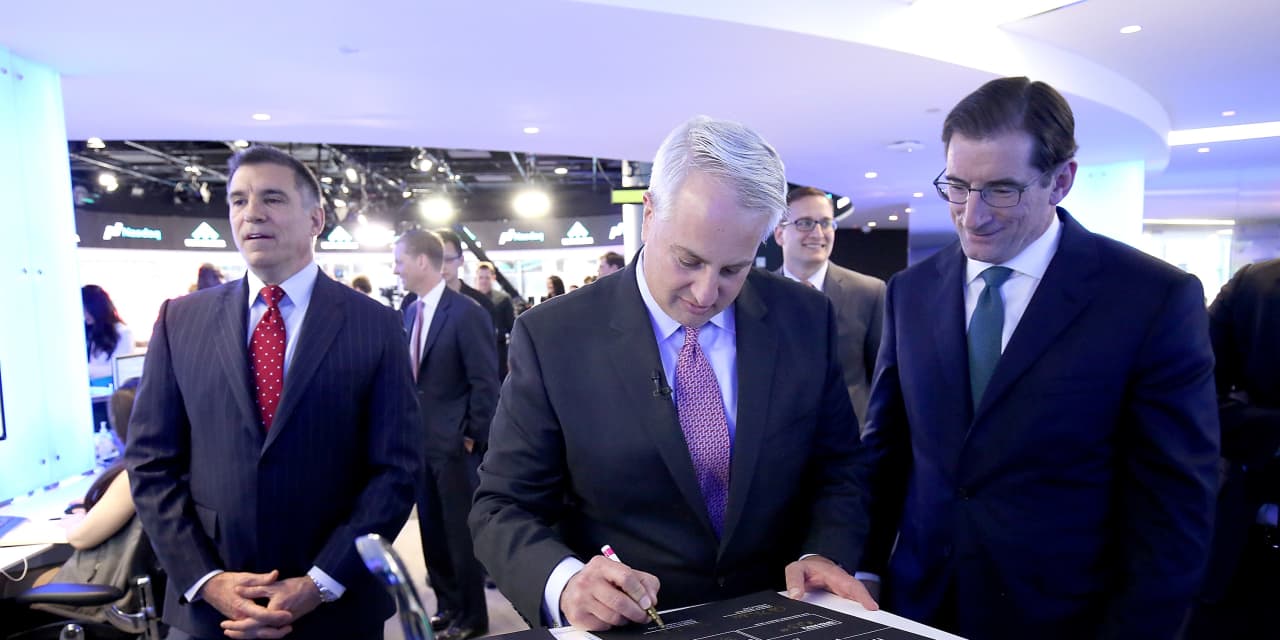News of a regulatory lawsuit sent shares of market maker
Virtu Financial
tumbling, but the CEO and another top executive bought up shares on the open market.
Virtu
(ticker: VIRT) said after the market close on Sept. 12 that the Securities and Exchange Commission had sued the company, alleging it misled customers about how it safeguarded their confidential trading data, and that a hypothetical vulnerability could allow Virtu’s proprietary traders to misuse customer data to profitably trade ahead of customers’ future orders.
Virtu said that it had disclosed the hypothetical vulnerability to the SEC in 2019 during a regulatory examination and was disappointed that the agency chose to sue. Virtu CEO Douglas A. Cifu said in a statement that the company tried to settle the SEC’s investigation instead of going to court.
Shares dove 9% to $16.89 on Sept. 13. That day, Cifu and Co-President and Co-Chief Operating Officer Joe Molluso bought the embattled shares.
Cifu paid $853,150 for 50,000 Virtu shares, an average price of $17.06 each. According to a form he filed with the SEC, Cifu purchased the stock through a trust that now owns 442,755 shares. He also owns another 452,907 shares in a personal account.
Molluso paid $257,500 for 15,000 shares, an average price of $17.17 each. He now owns 358,160 Virtu shares.
Virtu didn’t make the executives available for comment, but said in an email, “We strongly disagree with the SEC’s position and will defend ourselves vigorously.” The company also referred to a detailed statement on the matter.
Cifu last bought Virtu stock on the open market in May, when he paid $842,425 for 50,000 shares, an average price of $16.85 each.
The buy is Molluso’s first on the open market. Most of the Virtu shares he owns were gleaned through deferred and restricted stock units received as compensation.
Virtu stock is 6.5% higher in Thursday trading, at $18, but shares sport a year-to-date loss of about 12%.
Inside Scoop is a regular Barron’s feature covering stock transactions by corporate executives and board members—so-called insiders—as well as large shareholders, politicians, and other prominent figures. Due to their insider status, these investors are required to disclose stock trades with the Securities and Exchange Commission or other regulatory groups.
Write to Ed Lin at [email protected] and follow @BarronsEdLin.
Read the full article here




